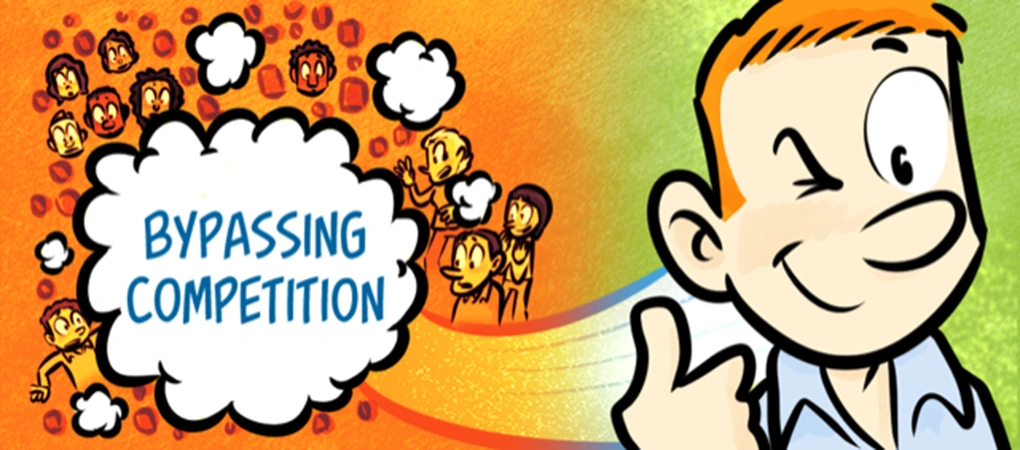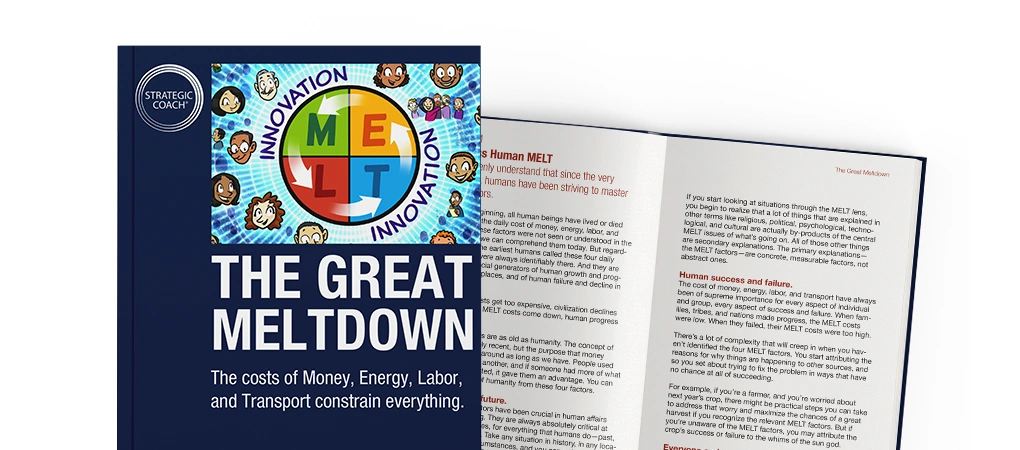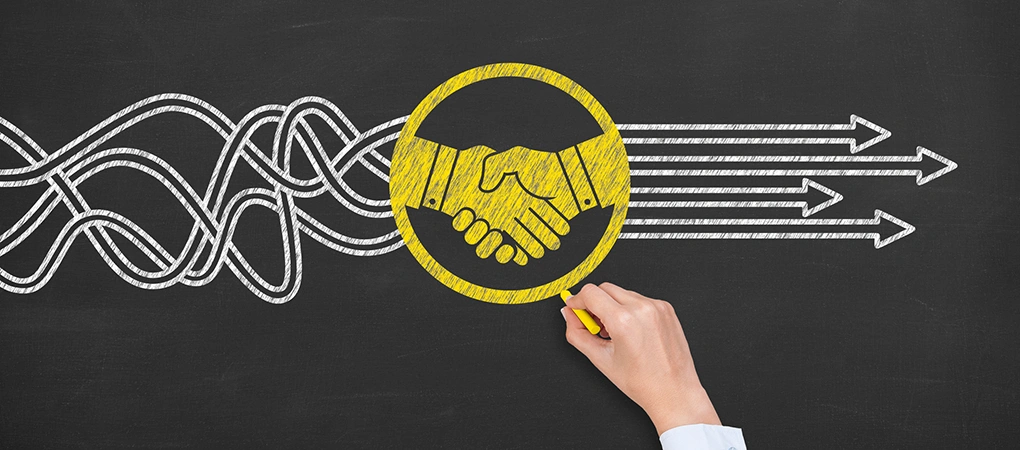Setting Your Price: What Is Your Customer Willing To Pay?
Dan Sullivan

Listen to the podcast below or subscribe to the Inside Strategic Coach podcast on iTunes.
Why You Should Set A Price That Scares You
If you’re like a lot of entrepreneurs, you’re selling a valuable product, service, or experience, but you’re not sure how to go about setting your price in the marketplace.
A lot of factors can affect a price. Keep in mind that the value of what you’re selling is as high as what the people writing the checks for it are willing to pay.
Don’t charge competitively.
What the vast majority of entrepreneurs charge is totally determined by what their competition is charging.
They’re taking their reference from people who don’t wish them success, who don’t want them to have any return on pricing.
From the very beginning, I didn’t want to use my competition as a reference point because I didn’t want my value creation to be determined by what anyone else was doing.
Provide equivalent value.
I look entirely at the customer, the person who’s writing the check in the amount we’re asking for, and I ask, “When they spend this amount of money on something, what kind of experience are they buying, and how does that experience get packaged?”
Let’s say the answer for some clients is that they spend the same amount on their yearly investment in Strategic Coach as they do on a week-long trip to New York, where they stay at five-star hotels, eat at great restaurants, and see first-class shows.
To give them value for their check, we have to provide the same level of experience that they expect to get on those trips. So, it goes beyond the actual workshops and into what our clients expect from the amount of money they’re spending.
These things are entirely subjective, and you have to see it through the eyes of the check writer.
What would make your customers feel good when writing a check for the amount you’re asking for? What can you provide that would make them feel like they’re getting a tremendous return for their money?
Remember: price is never based entirely on a product or service. Experience is a major factor.
For more of Dan Sullivan’s entrepreneurial knowledge and wisdom, tune in to his on-demand webinar!
Scare yourself.
When you find yourself scared about quoting a price to existing or potential customers, remember that you’re the only one scared about it. The customer isn’t scared about your price because they haven’t heard it yet.
The confidence with which you tell them the price is part of the sale, and in order to make yourself confident, you have to be okay with getting a no.
Not everyone is going to be an appropriate client for you, so getting a no in response to your price doesn’t mean you’re pricing things wrong.
If I’m speaking with a prospective client, I’m always up front about what the price is for the different levels of the Coach program. If the client says, “No, that’s too much,” I just say, “I’m sorry,” because the kind of people who join our program don’t see it as a cost; they see it as an investment.
The first time you ask for a price that’s higher than any price you’ve quoted in the past, you’ll feel scared, and that’s natural. But you’re committed to quoting that price because you believe you’re worth it, and if you stick to your price, whether the first person you ask says yes or no, you’re going to gain capability and confidence.
When people ask me how they should be pricing their product or service, I tell them, “Raise the price in your mind until you’re scared.” Once they tell me they have a price in mind that scares them, I tell them to add 20 percent to it.
The reason for the added 20 percent is so that when you ask for that amount and the check writer doesn’t blink, you won’t kick yourself later for not asking for more.
The initial number is proof that you’re willing to ask for a price that scares you.
The added 20 percent is your commitment to yourself, your commitment to your value, and the proof that you’re willing to go through a period of courage that might include rejection because you want to develop a new capability and be better paid for how good you think you’ll be in the future.
That takes you to a whole different level of confidence, and the moment you do that, you’ll attract that higher level of check writer into your world.







